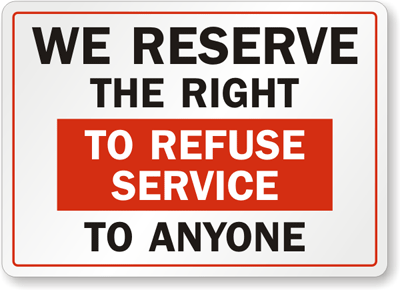In recent times, companies find themselves torn when private ethics—political, social, or cultural—collide with client demands. This raises an increasing question: Is it just for companies to deny service due to the personal views of their owners?
Public visibility of a company
An argument can be advanced firms should exercise their principles, particularly if they form an integral part of their brand. A local bakery owned by a family, might, for instance, turn down an order for a function they disapprove of, be it due to political causes or religious divergence. At first glance, this matches individual liberties and helps proprietors guard their honor and articulate their values. After all, why must anyone be made to partake in a deal they ethically reject?
But on considering the matter more seriously, remember that a company is fundamentally a public establishment. It functions in a society marked by various opinions and providing services should not always be contingent on ideological harmony. Imagine an occasion where you entered a restaurant only to be denied food because your political opinion didn’t mirror that of the owner’s. In such circumstances, how do we determine the limit? Can denial of service due to personal viewpoints pave the way for discrimination and exclusion?
Consequence of Refusal on Brand Reputation
Now, let’s look at the legal viewpoint. A number of jurisdictions have laws guarding individuals against discrimination according to race, gender, or religious belief. However, personal conviction is generally wider in scope, more subjective and harder to control. Rejecting service owing to political ideologies could become unstable ground. Might this result in a divided society where all retail outlets and service providers only cater to those sharing similar opinions?

The reputation of the brand is another potential area of dispute. Firms that pick their customers run the risk of isolating a large share of the market. Especially, social media is quick to capitalize on disputes. Boycotts, viral campaigns, and bad press can follow any such refusal, which may result in more damage to a business’s reputation than anticipated.
Ultimately, businesses must ask themselves: What’s more important—protecting personal beliefs or embracing the inclusivity that fosters trust and growth? A nuanced balance might lie in allowing personal opinions, but tempering them with the understanding that, in business, the customer often transcends ideologies. The challenge, then, is for companies to walk the fine line between expression and exclusion.
Stay tuned to Brandsynario for latest news and updates.







































